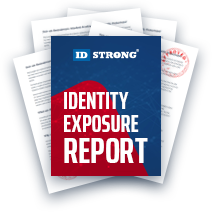IRS Scam, Con Artists Latest Practice
Table of Contents
- By David Lukic
- Published: Nov 13, 2020
- Last Updated: Mar 18, 2022
Scammers have gotten very clever, and another scam targeting Americans is the IRS Scam. It’s when a person calls you pretending to be from the Internal Revenue Service and demands back taxes (usually thousands of dollars) immediately. They threaten you with arrest, lawsuits, or frozen assets to get you to comply.

How Tax Scams Work
Typically, you may get a call from someone saying they are from the Internal Revenue Service (IRS). They may leave a recorded message, too (using a robotic voice, so you don’t detect any accent). Once they get you on the phone, they try to scare you by saying you owe taxes, and the police are on their way to arrest you, or you have been named in a lawsuit.
In other cases, victims claim that the scammer threatened to freeze their assets. Others say they are told they are eligible for a tax rebate. Their goal is to trick you into believing they are legitimate and do what they say.
These con artists use scare tactics to get people to act irrationally and pay up quickly. The IRS claims millions of dollars have been lost due to “IRS tax scams.” Additionally, they offer up this information on details of how these scams work:
- Scammers use fake names and IRS badge numbers to identify themselves.
- Scammers may steal taxpayer’s Social Security Number.
- Scammers spoof caller ID to make the phone number appear as if the IRS or another local law enforcement agency is calling.
- Scammers may send bogus IRS emails to victims to support their bogus calls.
- Victims hear background noise of other calls to mimic a call site.
- After threatening victims with jail time or with, driver’s license or other professional license revocation, scammers hang up. Others soon call back pretending to be from local law enforcement agencies or the Department of Motor Vehicles, and caller ID again supports their claim.
Most IRS scammers will demand immediate payment of the taxes using a wire transfer or gift cards like Apple iTunes or Google Play. This is a big tip-off that it’s a scam. The IRS would never demand payment by those methods. in a form other than a check. They also don’t call and harass people or send the police to arrest them.
Common IRS Scam Messages
It's incredibly stressful and challenging to recognize an IRS scam in the heat of the moment. The government's authority is always looming over us, and most people don't know precisely how its organizations enforce their rules. Scammers look to take advantage of our fear and make us more submissive.
So, we've outlined several commonly used scam messages that should set off your inner alarm bells. While you shouldn't ignore messages claiming to be from the IRS, make sure to contact them through their official channels and on your own terms. Remember that you should ALWAYS be the one initiating direct conversations with the IRS.
"Fill out this form to receive the rest of your tax return."
These messages typically come by email with a link to an online form. The basic message talks about a mistake in your previous return and how you are eligible for a bigger tax refund. The paranoid side of us should immediately become suspicious. After all, the government isn't known for starting conversations that'll lose it money.
Aside from that red flag, the online form will ask for sensitive information like your Social Security Number and other personally identifiable information. It may seem perfectly reasonable for a government agency to request this information, but that's not true. The IRS never solicits information from taxpayers this way.
You should immediately close the web page and run an advanced malware removal program on your device. It's likely that simply clicking the link initiated a malware download that'll harm your computer and transfer your information to the criminal.
"Continue with your IRS account sign up."
The IRS has an online account system where many annoying processes can be expedited. Users can access tax records, download transcripts, and set up automated payment plans. It's much more convenient than waiting on hold for hours or sitting in a crowded government office.
While this is an excellent service, the IRS will NEVER contact you directly to set it up or send you a reminder. Scammers are using it as an avenue to request people's personal information, including tax ID numbers, address history, and Social Security Numbers.
People are more open to discussing their private information with government agencies. This is because it's seen as a verification process rather than an attempt to gather data.
"Act immediately to avoid arrest or deportation!"
In many cases, arresting organizations like the police and FBI act as the government's hammer. There's understandable anxiety when you're threatened with a visit from one of these organizations. But that's not how the IRS works.
While IRS revenue officers make home visits, they aren't weapons against taxpayers. The recipient is always notified by mail with an explanation. Both parties agree upon the visiting date, and the conversation is meant to stay cordial. A "same day" visit isn't the main focus (although some time element will be involved.)
One of the most heart-sinking threats levied is deportation. Blackhearted criminals target immigrant families with these messages by telling them that immigration officers are coming to investigate.
Remember that the IRS agent's primary responsibilities are to review the taxpayer's obligations and the next steps. Any drastic consequences will be discussed directly with the agent rather than via a crude email, phone call, or text message.
"Your Driver's License or Social Security Number is being revoked."
The IRS will not cancel your driver's license, business license, or citizenship status due to unpaid taxes. Some laws surrounding "seriously delinquent tax debts" can put your passport status at risk, but those are extreme cases. The taxpayer must own more than $59,000, and every effort to collect must be exhausted.
Additionally, US Social Security Numbers are more beneficial to government tracking than to the individual. So, canceling an SSN would make tracking delinquent taxes harder for the IRS. They're also tied to people's income, retirement benefits, address history, and criminal filings.
Although the IRS cannot revoke your driver’s license, some state agencies can. Not all states do this, and the amount of back taxes to trigger this action differs depending on where you live. Read up on local laws to know if you’re in danger.
"Contact us to prevent the seizure of your house or car."
Owning your home or paying off your first car are momentous milestones in your life. We dump hundreds of thousands of dollars into our property, which makes losing them even more bone-chilling.
A tax scam artist may text or email you saying that the IRS is putting a levy on your property. While the IRS does seize property due to unpaid taxes, it's always a last resort. You'll never have your property taken out-of-the-blue as part of a first, second, or third communication. Anyone affected by this process would have had many conversations with an IRS agent beforehand.
Another great sign that a threat is fake is if you still owe a large balance on the asset. The IRS seizes assets in an attempt to pay off what you owe. If you've only paid $2000 off your car's balance, then the IRS would likely lose out by selling it. Any threat directed toward largely unpaid property is likely a scam.
Levies are permitted for vehicles, real estate, wages, and even cryptocurrency. Interestingly, crypto assets comprised more than 90 percent of seized property in 2021.
What the IRS Does and Does Not
The IRS wants U.S. citizens to know that they have a standard operating procedure that should help you identify what is and what is not a scam. Knowledge is power, and the best way to stay clear of these scams.
- The IRS never contacts taxpayers via email, text, or social media.
- The IRS does not call you about a tax issue until quite a few notices have been sent via mail.
- The IRS never threatens taxpayers or demands immediate payment through a specific payment method.
- The IRS does not threaten or send the police to arrest you for not paying your taxes. A very long involved process takes place in the courts if you are in arrears for paying taxes.
- The IRS does not ask for credit or debit card numbers over the phone.
- The IRS does not call you to let you know about a refund.
- The IRS does send notices by mail.
The IRS Dirty Dozen

The IRS has seen a massive increase in IRS scams over the past few years. Every year they post a “Dirty Dozen” to warn taxpayers about the risks and what to watch out for and how to respond. For 2019 some of the highlights include:
- Phishing scams - fake emails designed to lure you in and make you click a link that infects your computer or tricks you into providing personal information for identity theft.
- Phone scams - people impersonate IRS employees and threaten you to pay taxes now or else.
- Identity theft scams - tricksters get you to hand over your social security number, credit card details, or other information to steal your identity and later to be used for credit card frauds.
- Fake charities - fake charities that you donate to (for tax credits) and they don’t even exist, nor do you get the tax benefit.
- Offshore tax avoidance - criminals that try to get you to store your money or assets offshore to avoid taxes, but in the end, you lose the money to fraudsters.
- Abusive Tax Shelters - unethical people try to get you to invest in tax shelters, which are illegal, and you end up paying the price.
- Taxpayer Advocacy Panel - impersonators calling pretending to be from this IRS agency and the caller ID on the phone is spoofed to show that department.
These are just a sampling of the ways con artists try to trick you out of your hard-earned money or steal your identity.
What to Do if You Are a Victim of IRS Scammers
If you’ve been targeted by are a victim of tax fraud scams or some other type of IRS scam, you can report it using a form on the treasury.gov website. Send any phishing emails you receive to: phishing@irs.gov. You can also call to report a scam at 800-366-4484. Additionally, you can report phone or email scams to the FTC here.
Everybody handles threats differently, and it’s hard to keep a cool head. The number one thing to remember is that the IRS will never contact you first via email, text, or phone call. Their processes have fairly forgiving timelines, and you should always have time to contact them through official channels and confirm any frightening messages you receive.
Some other things to remember to stay safe are:
- Never click a link or download attachments in email, even if they look legitimate.
- If someone calls you from the IRS and you know you don’t owe taxes, hang up the phone.
- If you do owe taxes, contact the IRS directly; do not believe the person on the phone is really from the IRS.
- Never give out credit card information over the phone.
- If something sounds too good to be true, it probably is, walk away.
- Keep all your devices updated and install antivirus software to protect you against malware or ransomware.
Always use common sense and don’t let fear or panic drive you to make a bad decision.



















































































































